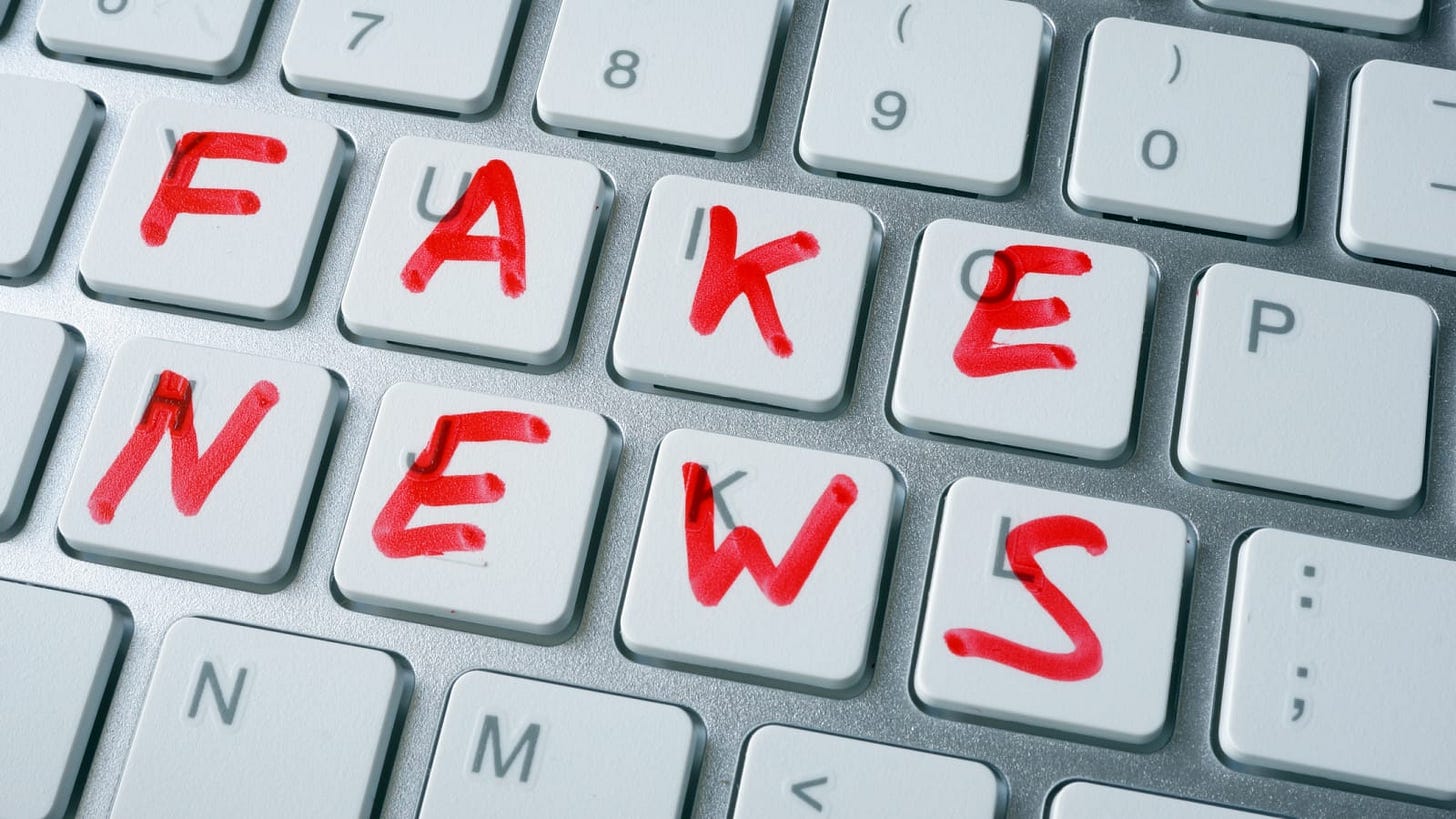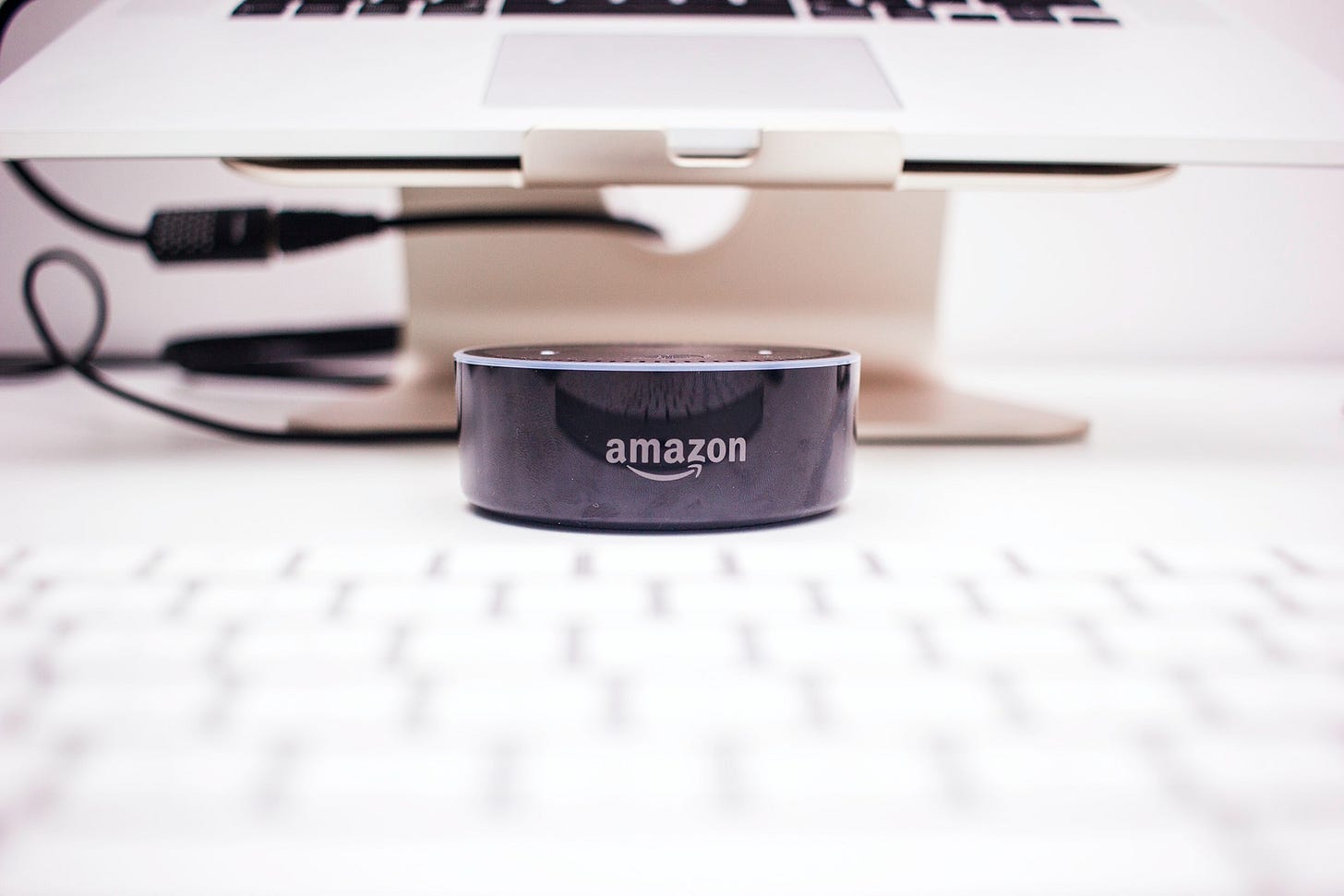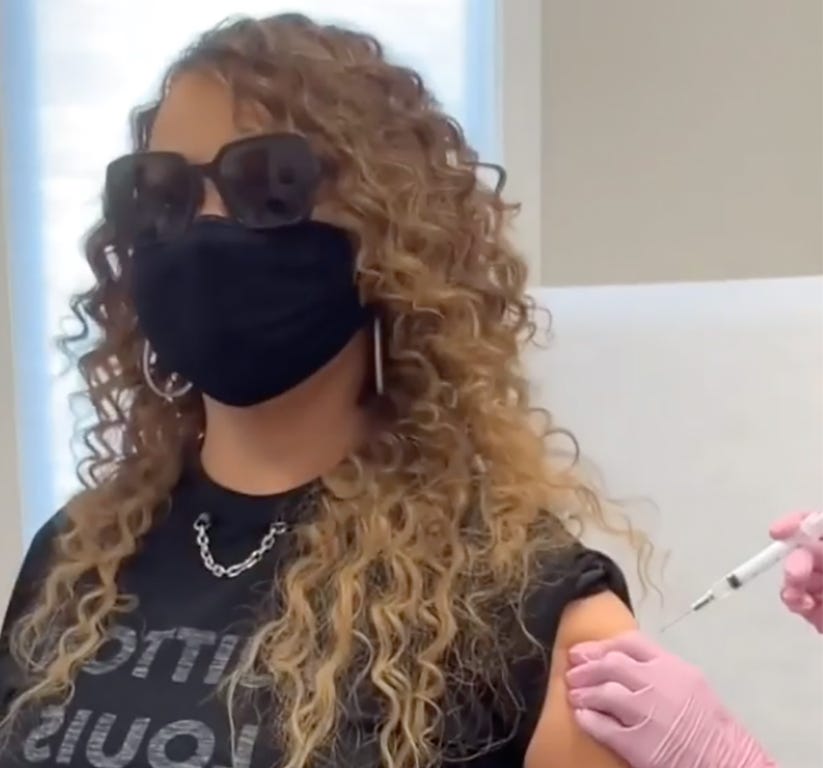A few thoughts on the new WeWork documentary
Plus: Why people share fake news and the latest tea from Teen Vogue.
If you’re searching for a longform case study into how American capitalism sustains the white patriarchy, look no further than WeWork: Or the Making and Breaking of a $47 Billion Unicorn, the buzzy documentary that premiered at the virtual SXSW Film Festival last month and is currently streaming on Hulu. The film, as Alissa Wilkinson at Vox notes in her fantastic criticism of the film, chronicles “the [WeWork co-founder and former CEO Adam] “Neumann’s rise and fall and the company’s while exploring the kinds of people who were drawn to his vision.” But it also lacks the nuance to explain like Kim Crayton, a self-described “antiracist economist” did in this phenomenal tweet, “how easily mediocre, unremarkable white dudes in ‘tech’ are able to leverage systems, institutions and policies, in service to unproven ideas, in ways that others can’t.” As I wrote last year, this “privilege to fail” benefits whiteness in a way that creates space for men like Neumann to fail as founders and executives while excluding people of color and LGBTQ+ individuals from a fair shot at succeeding with some of those wasted resources. Marginalized creators not only must cultivate the “charisma” that apparently made Neumann so attractive to employees and investors plus proof that we’re worthy of funds that often come from budgets earmarked specifically for overlooked and underserved communities. And if we fuck it all up, trust and believe we won’t be immortalized in a slick documentary.
Study: Smart people share fake news
Conventional wisdom suggests that ignorance is the catalyst behind why people share political fake news. But last night, I came across a study that challenges this assumption. A group of researchers mapped the psychological profiles of over 2,300 American Twitter users that were linked to behavior sharing data and sentiment analyses of more than 500,000 news story headlines and found that hatred of their political opponents is the most likely influence. “Sharing a political news story (fake or real) can be used to signal one’s political affiliation, by denigrating political opponents or by mobilizing politically like-minded peers,” the researchers wrote. And the odds of whether or not you’re predisposed to sharing fake news depends on how your relationship with media: Accuracy-oriented consumers “engage with and accept only true and reliable information to form an accurate picture of the world.” Then there are goal-oriented consumers who “focus on information that is useful given their pre-existing commitments to particular beliefs, groups or outcomes.” Read the full study: “Partisan polarization is the primary psychological motivation behind political fake news sharing on Twitter”
Do the opposite of Amazon next time you apologize
Amazon did something weird on Friday night: It apologized for clapping back at a Congressman on Twitter. If you read last Monday’s newsletter, you’ll remember I wrote about the company’s bizarre public feud with Sens. Elizabeth Warren and Bernie Sanders for paying too few taxes and poorly compensating its employees. (Turns out, all the tough talk was at the command of outgoing CEO Jeff Bezos.) Anyway, after those tweets, users started resurfacing reports of Amazon workers peeing in water bottles to avoid missing their performance goals, which brings us back to the company’s apology. It was weird because it didn’t express regret to its workers, which would be an admission of wrongdoing, of course. Amazon said sorry for “not [contemplating] our large driver population and instead wrongly [focusing] only on our fulfillment centers,” suggesting warehouse workers are lying about skipping breaks because “a typical Amazon fulfillment center has dozens of restrooms, and employees are able to step away from their work station at any time.” Amazon aggressively defends itself as if it's an upstart company instead of the second-largest private employer in the country with what David Streitfeld at The New York Times characterizes as a growing “pro-worker public sentiment and pro-union president.” Until the company reconciles this tension, these issues are unlikely to go away any time soon.
Further reading:
— Ian Bogost at The Atlantic: “What on Earth is Amazon Doing?”
— Karen Weise at NYT: “Amazon Illegally Fired Activist Workers, Labor Board Finds”
— Sarah Jones at Intelligencer: “Amazon’s convenience is destroying us”
Today’s subscriber exclusives:
Read All About It: The rise of the vaccine selfie, the myth of the supernegro, the therapy-app fantasy and the cultural origin of the word “cancel.”
Michael’s Picks: The book to read if you want to set better boundaries, a spring-perfect collarless shirt and the new home for my go-to kitchen ingredients.

Don’t burn yourself with this hot Teen Vogue goss
Few brands were as active on Twitter as Teen Vogue, the Condé Nast-owned sister publication to 128-year-old Vogue magazine until scandal sent the brand into a digital blackout. As I wrote in this newsletter, it all started a few weeks ago when Teen Vogue hired political reporter Alexi McCammond as its new editor-in-chief. The staff rejected the hire due to old anti-Asian and anti-LGBTQ+ tweets from McCammond that she already apologized for. She eventually stepped down. And the magazine hasn't tweeted in nearly three weeks. Even the magazine’s press shop is MIA: Multiple requests from The Supercreator for comment about Teen Vogue's Twitter inactivity and a recent story about its non-Black social media manager writing the N-word in tweets from 2009 and 2010 have gone unanswered. But Sarah Ellison at The Washington Post has the hot goss on what's going down at 1 World Trade Center. (Disclosure: I worked at Lucky, a defunct Condé Nast in 2014 and 2015.) Ellison's reporting revealed the staff who didn’t know about the tweets felt ill-equipped for “what seemed like an inevitable scandal" and former Teen Vogue editor-in-chief Lindsay Peoples Wagner, who did not list McCammond as one of her proposed successors, warned “that the old tweets could reemerge as a problem.” It also includes some on-point quotes from internal sources and diversity professionals who speak to the company’s inability to read the room when it comes to recent hires. I’ll loop you in if Condé gets back to me.
Everything else you should know today:
— Resistance to the coronavirus vaccine from white evangelical Christians could extend the pandemic as variants spread across the country. [NYT]
— As resilient as America’s youth has been during the pandemic, experts are worried about the mental health crisis facing our kids. [Boston Globe]
— Proof we’ll probably be wearing masks in the foreseeable future: The Department of Health and Human Services launched a $500,000 competition to develop the “next generation of masks.” [The Hill]
— Since weed is now legal in New York City, cops are prohibited from using the smell of marijuana as a reason to search a vehicle. [New York Daily News]
— Pinterest is reportedly in ongoing talks to purchase VSCO, the photo app beloved by Gen Z. [NYT]
— In a new interview, Apple CEO Tim Cook calls “digital privacy one of the top issues of the 21st century” and says he’s unconcerned with Facebook. [NYT]
— Related: Facebook is campaigning small businesses to be wearier of Apple’s new anti-tracking policies, which could affect the social app’s bottom line. [Digiday]





